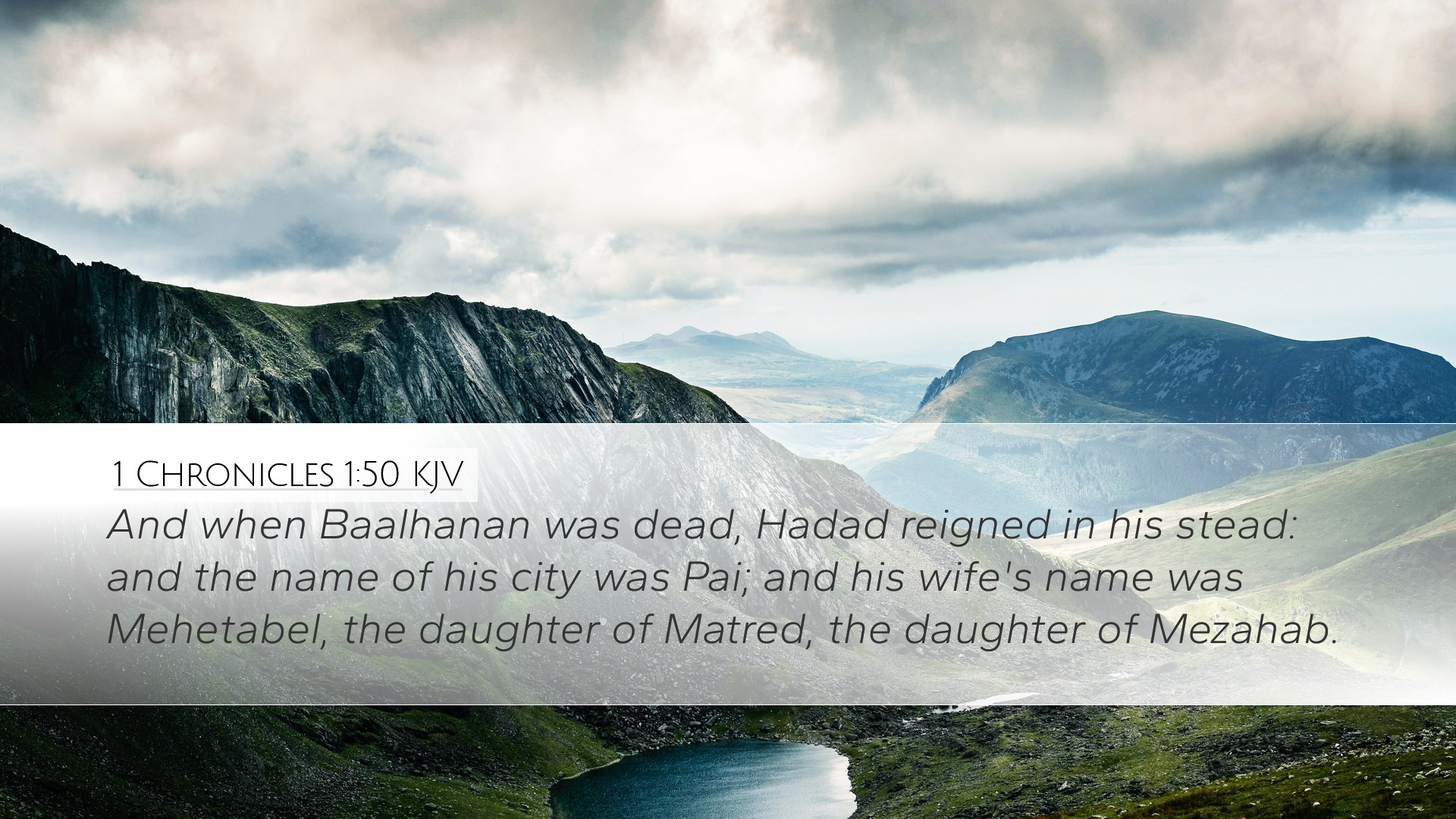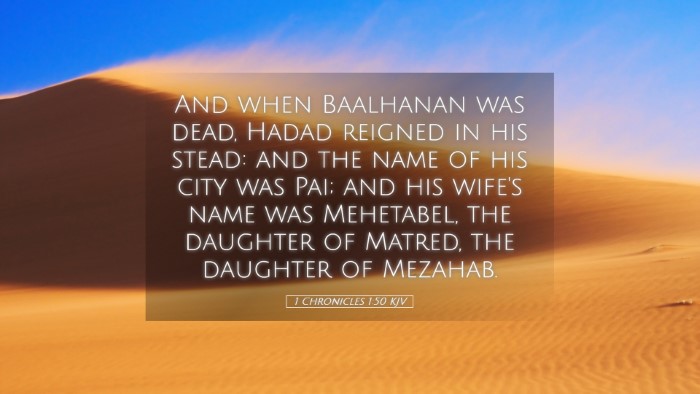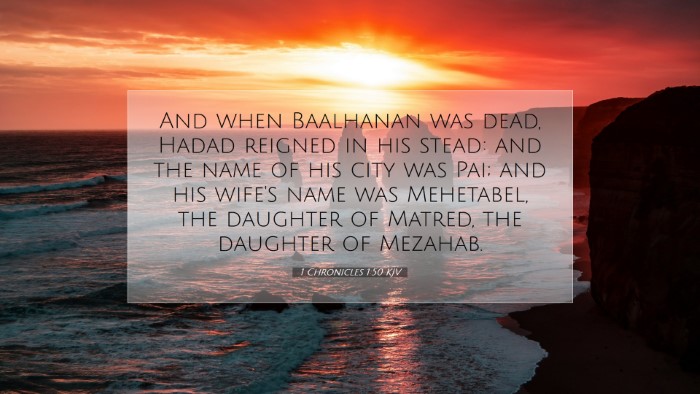Commentary on 1 Chronicles 1:50
1 Chronicles 1:50 reads: "And the rest of the dead shall not live until the thousand years are finished." This verse sits within the context of the genealogical records and the history of Israel. Its placement here reveals the importance of lineage and divine sovereignty over history, emphasizing not just a period of time but a prophetic insight into God's redemptive plan.
Introduction to the Chronicles Context
The Book of Chronicles encompasses a historical retelling from the creation through the rise and fall of Israel, and it eventually culminates in the promise of restoration. The author draws from various histories but aims to highlight God’s covenant with Israel. Thus, this verse is pivotal as it establishes the ultimate hope of resurrection and eternal life as fulfilled in Christ.
Insights from Matthew Henry
Matthew Henry emphasizes that this verse, while cryptic to some, encapsulates the notion of hope amid despair. The phrase “the rest of the dead” suggests a state of waiting, underscoring a contrast between the living and those who have not yet attained resurrection, an allusion to the final judgment. Henry reflects on the chronicle's purpose: to assure the faithful of God's promises, noting, "Those who hope in Him shall not be put to shame."
Albert Barnes' Exegesis
Albert Barnes provides a detailed commentary that contextualizes the verse within biblical prophecy. He notes that the “thousand years” mentioned aligns with the eschatological visions seen in Revelation, particularly regarding the millennial reign of Christ. Barnes states that the phrase indicates a period intended for the faithful to reign with Christ, while the rest remain in a state of death, serving as a reminder of the consequences of sin.
-
Assurance of Resurrection:
Barnes confirms the hope for all believers, asserting that though some may sleep in death, they will ultimately rise again. This resurrection is not immediate but is assured for those who have faith.
-
Judgment and Restoration:
He provides insight into the nature of God’s judgment and restoration as essential themes in Israel's history, revealing how this lineage remains connected to God's covenant promises through generations.
Adam Clarke's Reflection
Adam Clarke offers a theological analysis of 1 Chronicles 1:50 that conveys both exegesis and application. He focuses on the implications of the verse in connection to spiritual death and resurrection. Clarke states that “the rest of the dead” symbolizes those who lived without faith and the consequences that follow.
-
Spiritual Application:
He highlights the necessity of being spiritually alive, linking this concept to the believers’ anticipation of glory and recognizing the trials and tribulations experienced in life as a part of God's sovereign plan.
-
Historical Significance:
Furthermore, Clarke emphasizes the significance of the genealogies in highlighting the faithful remnant, fostering an understanding of God's redemptive history leading to Christ.
Theological Implications
From the combined insights of these commentaries, it is clear that 1 Chronicles 1:50 contemplates a broader theological point on resurrection, hope, and judgment. This verse encourages pastors, students, and theologians to reflect on the nature of life after death in light of God’s promises.
It invites the congregation to comprehend the scope of living in anticipation of resurrection while recognizing the account of human history recorded in scripture as a testimony of faithfulness and divine sovereignty.
Application for Today's Believers
Ultimately, the message of 1 Chronicles 1:50 resonates powerfully with believers today. It calls for a response of faith, urging individuals not to fear death but to embrace the hope and reality of eternal life promised through Christ. As such, pastors can use this verse in sermons to emphasize the continuity of God’s plan throughout history.
This reflection acts as a foundation for further study into eschatology and the hope of resurrection, encouraging believers to live in light of the eternal rather than the temporal, fostering a perspective that looks beyond present hardships to future glory.


